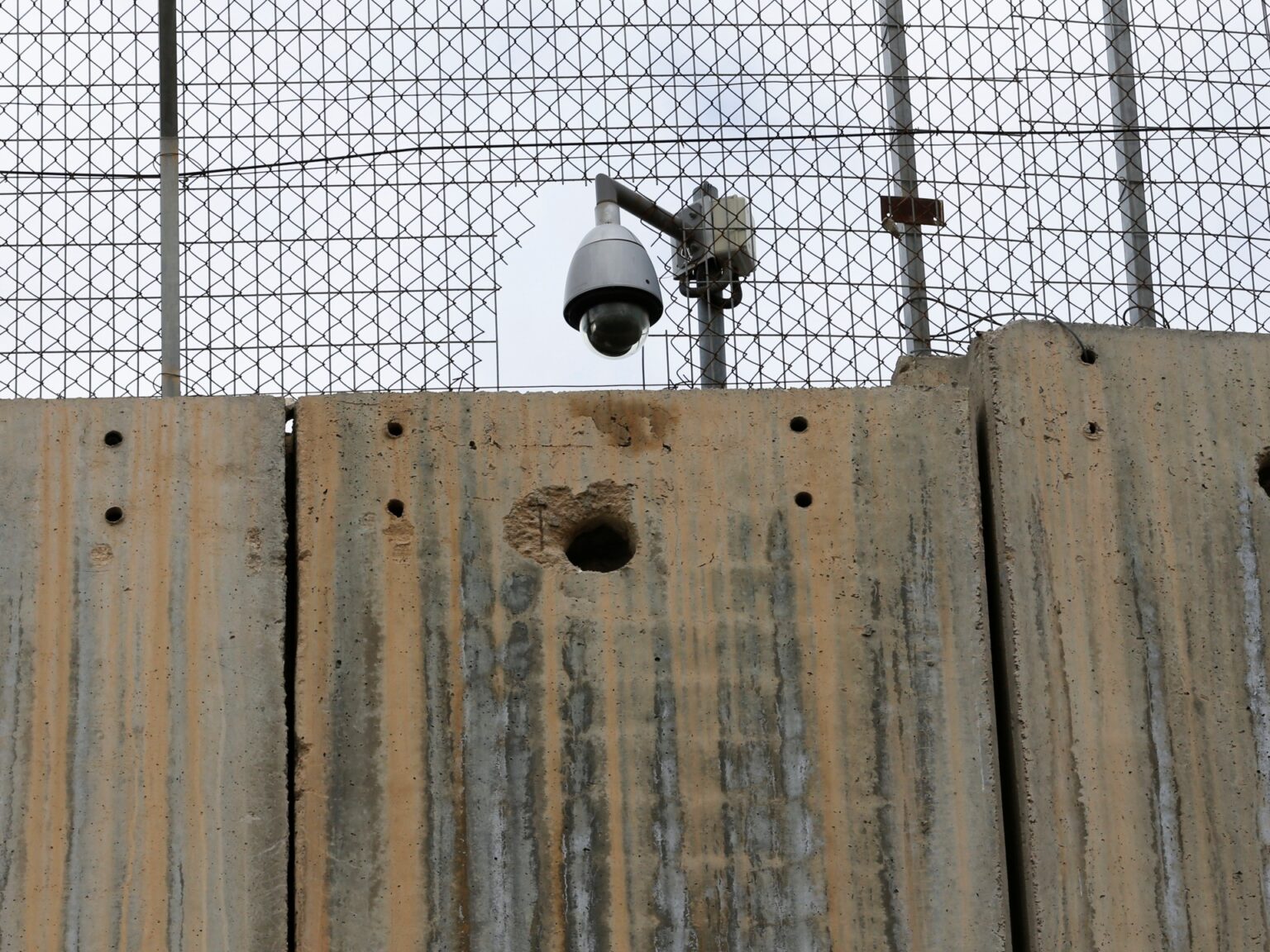Global Courant 2023-05-07 14:28:38
For activist Issa Amro, the latest revelations from human rights organization Amnesty International about Israel’s increasing use of facial recognition technology against Palestinians come as no surprise.
“I live it. I feel it. It bothers me. My people are suffering,” he told Al Jazeera from Hebron.
On May 2, Amnesty published a report titled Automated Apartheid, which details the workings of Israel’s Red Wolf program — a facial recognition technology used to track Palestinians since last year and believed to be linked to similar, earlier programs known as Blue Wolf and Wolf Pack.
The technology has been deployed at checkpoints in the city of Hebron and other parts of the occupied West Bank, scanning the faces of Palestinians and comparing them to existing databases.
Palestinians, like everyone else, have the right to live in a world that values equality and dignity.
Help dismantle Israel’s apartheid and call for an end to the delivery of facial recognition technologies used in the occupied Palestinian territories pic.twitter.com/SlzJZbYEkd
— Amnesty International (@amnesty) May 2, 2023
If the individual’s information is not found in existing databases, the individual will be automatically enrolled in Red Wolf without authorization and may even be denied entry to the checkpoint, Amnesty revealed.
In a statement to The New York Times, the Israeli military said it is “conducting necessary security and intelligence operations while making significant efforts to minimize damage to the routine activities of the Palestinian population.”
Palestinian writer Jalal Abukhater said the surveillance systems are being used to make Palestinians feel they have no rights.
“People feel this chilling effect, when they don’t socialize or move around as freely as they would like — they don’t live normally the way they would like,” Abukhater, speaking from occupied East Jerusalem, told Al Jazeera.
“This form of surveillance system is used specifically to entrench the occupation… they want to perpetuate apartheid.”
According to Amnesty, facial recognition surveillance networks have also increased in East Jerusalem, including around sites of cultural significance such as the Damascus Gate – the main entrance to the old city and a site of regular protests against the occupier.
In February last year, Amnesty said Israel is imposing apartheid on Palestinians and treating them as “an inferior racial group”. Other organizations, including the US-based Human Rights Watch and the Israeli rights group B’Tselem, have reached similar conclusions.
Hebron, which was occupied by Israel in 1967, is divided into two parts: H1, governed by the Palestinian Authority, and H2, governed by Israel, according to the 1997 Hebron Agreement.
Some 200,000 Palestinians live on both sides, as well as several hundred Israeli settlers who are heavily protected by Israeli troops.
Palestinians are regularly subjected to checkpoints and prohibited from using several major roads and highways.
‘A lab’
Activist Amro says the Palestinians living in Hebron have become mere “objects” in what he calls Israeli “experiments.”
“Hebron has become a laboratory for their security solutions to simulate us, troubleshoot us and bring their technologies to market,” he said. “We have nothing to say about it.”
Israel is cited as a major exporter of cyber and civilian monitoring technologies to countries such as Colombia, India and Mexico.
Palestinians pass through an Israeli checkpoint on their way to Jerusalem’s Al-Aqsa Mosque (File: Mussa Qawasma/Reuters)
Israeli cybersecurity company NSO Group has received a lot of criticism for its flagship software Pegasus, a spy tool used by dozens of countries to hack into smartphones.
Hundreds of journalists, activists and even heads of state are reportedly targeted.
In addition, says writer Abukhater, cybersecurity programs like Red Wolf are necessary to ensure that Israel can maintain its burgeoning illegal settlement projects in the occupied territory.
“Surveillance technologies like this (facial recognition) are important, especially in cities where Israel is introducing settlers into the heart of Palestinian cities. The fact that they (settlements) are deep in Palestinian neighborhoods in places like East Jerusalem and Hebron creates a lot of problems and a lot of problems,” he said.
“It is (surveillance technology) a way to control Palestinians and make sure settlement expansion is not hindered by Palestinian resistance.”
The United Nations says Israeli settlements in the West Bank are illegal and a “flagrant violation” of international law.
‘Watched all the time’
According to Amro, the surveillance device has had a major impact on the daily movements of Palestinians, including him.
“I feel watched all the time. I feel watched all the time… including my social media, I go in and out of my house,” he said.
“Women come to me asking if they can see them in their bedroom… it’s heartbreaking to hear that women are concerned about this privacy with their husbands, their lovers,” he added.
According to the 43-year-old electrical engineer, families have been forced to leave heavily guarded Hebron for less guarded neighbourhoods.
“They don’t evict you right away. But they make it impossible for you to stay … and a lot has to do with these (surveillance) technologies and cameras everywhere,” said Amro.
Ori Givati, BTS advocacy director and former Israeli soldier, says Palestinians “have run out of private space.”
“If some may have felt in the past that they at least had their private information under their control, we’ve taken that away too.”
For years, Amnesty has called for a ban on the use of facial recognition technology for large-scale surveillance purposes, as it was used to “crush protests” and “harass minority communities”.
In the United States, facial recognition has resulted in people of mixed race being falsely targeted. Multiple cities such as Portland and San Francisco have banned their use by local police departments, while others are discussing similar measures.
The use of facial recognition has gained momentum in India, where authorities have used it to monitor political rallies and protests against the far-right Bharatiya Janata Party government, sparking fears of a crackdown on dissent and freedom of speech.








